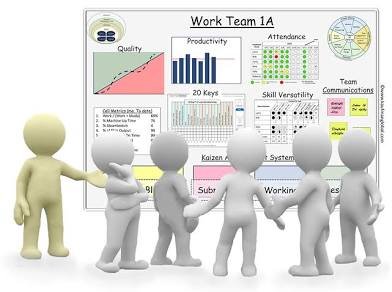In today’s manufacturing and engineering sectors, purposeful shift meetings have become a cornerstone of operational success. According to a 2024 Lean Enterprise Institute survey, 68% of high-performing manufacturers now report holding daily Tier 1 or shift meetings as part of their standard Management Operating System (MOS). These meetings drive frontline engagement, improve adherence to production schedules, and enhance safety awareness. Companies that consistently execute these meetings have seen up to a 15% improvement in schedule attainment and a 20% reduction in unplanned downtime, demonstrating how brief, structured communication at the start of each shift can yield significant productivity gains.
In service-based industries and engineering firms, there is a noticeable trend toward integrating agile-inspired practices like daily stand-ups into shift meetings. Research by McKinsey found that engineering and technical services teams using daily alignment meetings experienced a 25% reduction in project delays due to improved coordination and clearer resource allocation. Leaders are increasingly recognizing that purposeful shift meetings empower employees to identify risks early, share knowledge across functions, and rapidly adjust to shifting project priorities. As engineering work becomes more complex and collaborative, these meetings help ensure that cross-disciplinary teams remain aligned and focused on client deliverables.
Marketing teams, especially in fast-paced digital environments, are also adopting daily huddles to streamline campaign execution and improve responsiveness. A 2023 HubSpot report indicated that marketing teams who conduct daily stand-ups report a 23% faster turnaround on campaign tasks and a 17% increase in cross-functional communication effectiveness. By starting each day with clear objectives, teams can address shifting customer behaviors, pivot marketing tactics in real-time, and eliminate potential bottlenecks in execution. This trend reflects the broader shift toward data-driven, agile marketing approaches where speed, alignment, and team ownership are key drivers of success.
In warehousing and supply chain operations, purposeful shift meetings are proving critical in addressing today’s logistical challenges. A recent report from the Council of Supply Chain Management Professionals (CSCMP) highlighted that organizations with daily operational meetings saw a 12% improvement in order fulfillment rates and a 19% decrease in inventory discrepancies. These meetings serve as critical touchpoints to review demand forecasts, align labor resources, and resolve emerging supply chain disruptions before they impact service levels. As global supply chains remain under pressure from geopolitical and economic uncertainties, the ability to start each day with actionable insights and a united workforce has become a strategic advantage in maintaining efficiency and customer satisfaction.

